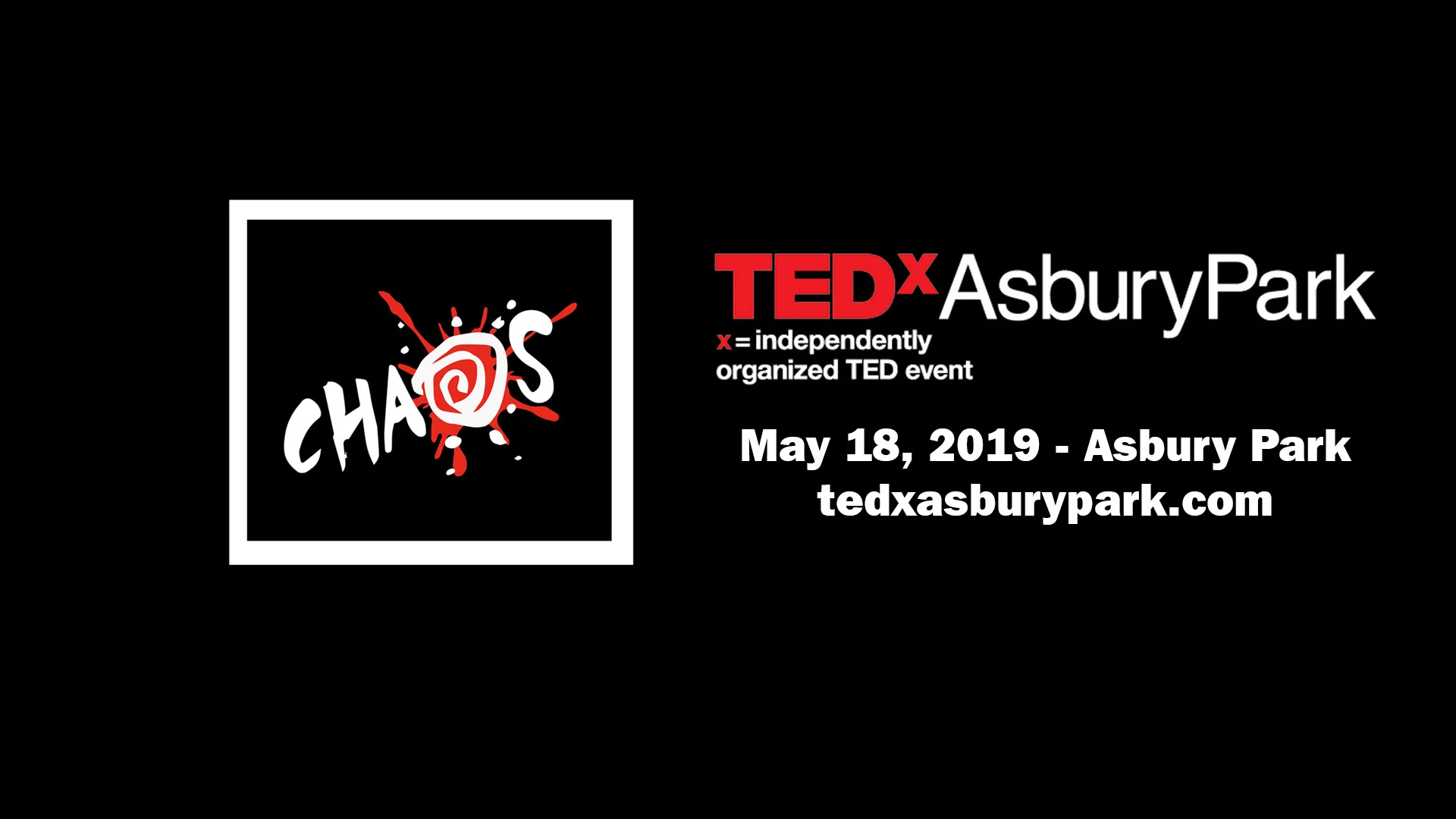Ben Freeburg: Hello everyone, and welcome to Expert Open Radio, I am your host Ben Freeberg. And we are the hosts of TEDxAsburyPark. Today we are here with expert speaker, Tara Geraghty, who is a speaker at this year’s TEDx conference on May 18, 2019. Welcome Tara.
Tara Geraghty: Hi! Thanks for having me.
Ben Freeburg: Of course. So we’re really excited to speak with you today and also hear
your talk. As some of our listeners, if you listen to some of our podcasts in the bank so far, we’re gonna be talking today on how to make, how to make cancer fun and that's what Tara’s going to dive into, which is just something obviously very personal to me as well, and something I tried to relay a little bit last year, but would love to hear the high-level overview of the talk from your end and what got you into it.
Tara Geraghty: Yeah! And it was exciting that when we started chatting, that you were the
one I was going to be talking with, because I think we so have a similar
mindset.
Ben Freeburg: Yes.
Tara Geraghty: And you know, I...when people find out you have cancer, whether it’s an
adult or a child, in my case it was my child. It was my 3 and a half year
old.
Ben Freeburg: Right.
Tara Geraghty: I think all of us, even though it's so prevalent, when it happens to you it’s that state of shock...
Ben Freeburg: Yes.
Tara Geraghty: And I don't know what your experience was, but I remember feeling like I was almost levitating out of my body, like having an out of body experience for a couple of weeks. You know.
Ben Freeburg: A hundred per cent.
Tara Geraghty: I remember sitting there and the doctors were talking to me and I'd be looking at my hands, going, I see my hands, they’re no longer attached to me. And the doctors tell this, and so I don't know if it’s personality or life experience. But when I had that diagnosis...my daughter was three and a half, I had just come out of a crazy, horrific domestic violence divorce...my whole life felt chaotic at that point. I felt like I was in the midst of chaos surrounding me. Which is why that topic this year, so resonated with me. And here I am...you know, just struggling trying to put my life back together, and get this diagnosis, and my response was “okay, I have no control.” When you’re in chaos you have no control over anything. And particularly when you have a child with cancer, as a parent I feel, you know you have even less control. Because I can’t choose how she’s going to respond to treatment, you know, I can’t choose if she’s going to have a good attitude or a bad attitude, I can’t choose if she’s going to give it her best or give up, you know. Even less control than if it was myself, and so I just felt well I have no control over anything at all. I’ve completely hit rock bottom, so my only choice is to sit here and cry and be depressed or make this as fun as I can.
Ben Freeburg: Yeah
Tara Geraghty: And um.
Ben Freeburg: That was exactly, that was exactly. I think that was actually one of my lines in my talk last year, was...
Tara Geraghty: Really?
Ben Freeburg: That’s it, that’s the two choices, you can either sit around and be bummed that you have cancer, and still have cancer...
Tara Geraghty: Yeah!
Ben Freeburg: or you can try to make it fun, and use it as an opportunity to grow, learn a little more and...
Tara Geraghty: You know, in our culture I think that when when you're in a place of chaos, or something that should be seen with you know sadness and grief and worry and all of that...it’s almost offensive...people get offended if you choose the fun.
Ben Freeburg: Yes.
Tara Geraghty: And that’s so interesting, because we're totally fine, if i said, “you know what, I'm gonna go and i'm going to pray about this, and I'm gonna go and I'm gonna meditate about that” and I did both of those things quite often. And those, those are okay. It’s great if you want to ground yourself and get in touch with your spirituality, it's great to use that as a coping skill, but if you laugh about it...ooo, you know … that’s offensive.
Ben Freeburg: Yes. And it also sounds like it’s proven out, your mentioning, can you share some more details on some of the experiments and thought leadership pieces you’ve read about it?
Tara Geraghty: Yeah! So when my daughter had cancer, my background was a little bit different than most people. My background is actually in theatre, and in improv, and my first job out of college was with a childhood, you know, child theatre company. You know, like children's theatre. So, I was taking a lot of the stuff that I was trained in, and creating these really fun experiences for my daughter. And we, we just had, it sounds crazy to say, we had a lot of fun. And the nurses would hang out in our room, and the people wanted to stop by, and I thought, why are you guys always in our room? And they would tell us, “It’s different in here” and you know, I had never been in any other child’s room so I thought “doesn’t everybody do this, doesn’t everybody throw a party?”.
Ben Freeburg: Right.
Tara Geraghty: And they’re like “no” and so when I was preparing for my, my TED submission, I said okay, I know what I’ve done but, let me see what this science is behind this.
Ben Freeburg: Right.
Tara Geraghty: You know this is more than just like okay, it feels good. And so I started to do research through the US Library of Medicine, and I was shocked, I just put in and searched “laughter” and over 2,200 medical studies came back. And they go back to the early thirteenth century, where doctors were using laughter to distract patients...
Ben Freeburg: Oh my god.
Tara Geraghty: ..from pain. Yeah, and one of my favorite ones that I found...and obviously during my talk I get more into the science behind this because this isn't just something that feels good...oh she had a story... it’s wow, there's actually a lot of, of data to back up the benefit of using laughter in times of chaos as a coping skill.
Ben Freeburg: Sure.
Tara Geraghty: And my favorite one, is they did a study where people who had botox, and physically could not frown because of their botox, were less depressed.
Ben Freeburg: That is so interesting.
Tara Geraghty: Isn't that crazy? Because of what happens to your body physically, on a level when you smile and you're releasing dopamines and like these feel-good hormones, and it does everything from increasing your pain tolerance, um so think about how painful, you know, some cancer treatments can be. That when you’re physically laughing, your muscles relax for up to a full 45 minutes afterwards. And so that allows you to be able to withstand pain more. It kills, it boosts the killer cells that fight infection. So here I am reading through all of this thinking “wow, I was doing this for me and my mental and my daughter’s mental” and I had no idea it was actually producing all of these really, like positive, healthy, effects in her body.
Ben Freeburg: That's so good to hear. So what ended up happening with you, and people spending time in the room, is that something where you’re, you’ve kind of more formalized that whole making it fun. Or is it more, are you acting as a resource for parents to do that themselves, or both?
Tara Geraghty: Yeah. Yes, so my daughter, just so everybody knows, my daughter is going to be thirteen this April.
Ben Freeburg: Incredible.
Tara Geraghty: And so yeah, and so she is just this amazing...I call her my miracle kid, she’s a survivor. She actually had stage 4 high risk neuroblastoma.
Ben Freeburg: Oh god.
Tara Geraghty: She had a low...she had a low survival rate.
Ben Freeburg: Yeah.
Tara Geraghty: And she's doing so well...she’s doing well in school and it’s just...I'm living like in every day of gratitude because I think that most people who go through a really horrific cancer experience come out and do. And so, afterwards, everyone said to me, and I mean everyone, strangers would say to me, you need to write a book, you need to write a book and I would think, I'm not going to write a book, you know, first of all, who would even read this, this is ridiculous...doesn't everybody do this. And I think that's one thing, that when we do something really natural...when it's really natural for us, we tend to discount or discredit that it's not natural for everybody. You know, and I would think oh that's ridiculous. And also when you get out of the chaos of cancer you kind of want to go back to your regular nonchaotic world. And the more I kept meeting families who were in...they were almost paralyzed in this state of fear. You know we would go for her hospital visits, or I would connect with other families and they just...I saw they do not have these tools they don't know what to do. They feel helpless and the more I started to see that, and just kind of the universe aligned and there were all these god signs, I thought I have an obligation to start talking about this and to share this with other people and to help. And what's been curious for me, Ben, is it hasn’t even been just cancer families. I had a woman I met, whose granddaughter had all sorts of medical issues and had surgeries as a child and was having some issues with eating and stuff like that. And so we were talking about, how can you start to infuse fun into this little girl?
Ben Freeburg: Yes
Tara Geraghty: So my experience is with cancer, but I think it’s for any parent, every child has to go to a doctor even if it’s just once a year for a well child visit. Or they have to go to a dentist or you have to go to the emergency room and I saw a mom post that her son was in the emergency room and how she was freaking out and I’m thinking “oh my gosh, you know, our children feed off of our energy”.
Ben Freeburg: Yes.
Tara Geraghty: And they look to us, right. When a little kid falls, what's the first thing they do? They look up to the grown-ups to see, okay should I start crying? Was this really bad? Are you scared or not?
Ben Freeburg: Yes.
Tara Geraghty: Right. So if you look at the little kid and you start laughing and you go “that was silly”...then all of a sudden you can kind of see their face relieved a little bit, like “oh, I guess I’m not really hurt, you're right, that was silly”.
Ben Freeburg: Yeah, and that is so good to hear and it's definitely coming through you. If you want to, can you quickly share a little bit about the website you have, I was just on the tab “What People Are Saying” and it very much seems like that point is getting across to some of those parents.
Tara Geraghty: Yeah, so the website is makingcancerfun.com and most people remember making-cancer-fun because they go, “huh?” or they do a second take.
Ben Freeburg: Yup.
Tara Geraghty: And so there is a website and there is a book. And so just starting to build some resources and we have some other things that are coming out during this year, and during the holidays I had done a series of videos for parents on really how to get through the holidays when your in the childhood cancer world. You know, tips, things like that. Even things like what to give somebody when their kid is in the hospital because people want to be generous and they don't know what to give. And just starting to be very open and share the videos and the stories and my thing is that if someone can take one idea, or one tip, and change that experience or have a fun day with their child, how is that going to change and ripple out
Ben Freeburg: Right.
Tara Geraghty: And just for the siblings. Children’s Hospital of Philadelphia, I was reading a study they had done, where um, up to about 30% of parents and siblings suffer from post traumatic stress after a childhood cancer diagnosis. And what was crazy about to me about that was that’s a higher rate than the actual patient. And so...
Ben Freeburg: Right.
Tara Geraghty: Yeah. And so, even just looking at the siblings and how can you make it fun when the siblings have to see each other? And what can you do to empower that child?
Ben Freeburg: Totally.
Tara Geraghty: And when you give somebody a feeling of control. And I talk more about this during my TED talk about using examples outside of the cancer world. What happens when we feel like we have control? It changes our experience in a very positive way.
Ben Freeburg: Yes.
Tara Geraghty: And so, the chaos of cancer, while it feels so out of control, it kind of reminds me when I first started hearing the topic of chaos. A tornado right, everything around is spinning and it’s dangerous, chaotic, and out of control. And it's not safe, you feel unsafe in a tornado obviously. But where is the safest place to be? In the eye of the tornado. Right, thats where it’s still.
Ben Freeburg: Right.
Tara Geraghty: So you're in this diagnosis of cancer, you've got this tornado spinning around you. You're in the eye. And now you get to choose, how you're going to be in that eye. If you're going to step into that chaos and get hurt in the chaos or if you’re going to stand there and say I’m going to laugh in the face of this chaos.
Ben Freeburg: Yeah.
Tara Geraghty: And I’m going to choose to stay here in the eye.
Ben Freeburg: Awesome.
Tara Geraghty: The chaos can be around me, but I'm not going to be, you know, I'm not going to allow it to hurt me.
Ben Freeburg: And that, and that is such a good way to approach anything, any difficult situation. So I love it and I can't wait to, to hear more. Unfortunately, we have to head out...
Tara Geraghty: Yeah!
Ben Freeburg: Right now, but, to our listeners, you will be able to hear, Tara in just a few weeks. So thank you so much to everyone for tuning in. You’ve been listening to Expert Open Radio, and this is a reminder to get your tickets for the largest, highest rated TEDx conference on the East Coast, which is TEDxAsburyPark on May 18, 2019. And you get to hear from Tara and a few other incredible speakers who are trying to make everything a little bit more fun and enjoyable.
Tara Geraghty: Thank you so much, Ben.
Ben Freeburg: Thank’s, Tara.





